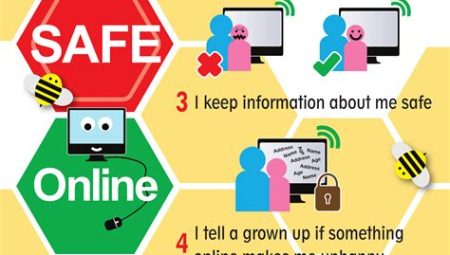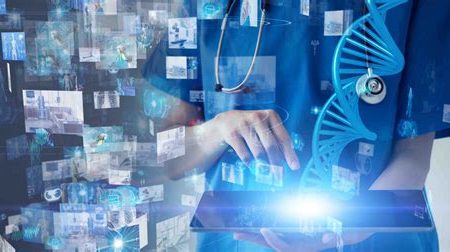In today’s digital age, technology has completely transformed the way we approach healthcare. From the comfort of our own homes, we can now connect with healthcare professionals, track our health in real-time, and even undergo complex medical procedures with the assistance of robots. This revolutionary shift, often referred to as Connected Health, is driven by a multitude of cutting-edge technologies that are reshaping patient care.
From telemedicine that brings healthcare directly to your doorstep, to wearable devices that monitor your health 24/7, and big data analytics that uncover insights for improved care, the possibilities seem endless. Artificial intelligence is enhancing diagnosis and treatment, the Internet of Things is creating a connected healthcare ecosystem, and virtual reality is transforming medical training and therapy. Mobile health apps are empowering patients to take control of their own well-being, while robotics are assisting surgeons in complex procedures.
In this blog post, we will dive into how these technologies are revolutionizing patient care and the impact they are making on the healthcare industry. Join us as we explore the exciting world of Connected Health.
Table of Contents
Telemedicine: Bringing Healthcare to Your Home
Telemedicine is revolutionizing the healthcare industry by bringing healthcare services directly to patients in the comfort of their own homes. With the advancements in technology, patients can now access medical care remotely through telecommunication and digital communication tools, such as video calls, messaging, and mobile apps.
This innovation is particularly beneficial for individuals who have difficulty accessing traditional healthcare facilities due to physical limitations, geographic location, or mobility issues. Through telemedicine, patients can receive medical advice, consultations, and even prescriptions without having to leave their homes.
Moreover, telemedicine also provides healthcare professionals with the ability to monitor patients’ health conditions and provide ongoing care through remote monitoring devices and wearable technology. This real-time data allows for early intervention and personalized care, ultimately leading to improved health outcomes.
Overall, telemedicine is transforming the way healthcare is delivered by making it more convenient, accessible, and efficient for patients, while also empowering healthcare providers to deliver high-quality care beyond the confines of a traditional medical setting.
Wearable Devices: Tracking Your Health in Real-time
In today’s digital age, wearable devices have revolutionized the way individuals monitor and track their health in real-time. From fitness trackers to smartwatches, these wearable devices have become an essential tool for individuals looking to take control of their personal health and wellness.
With the ability to continuously monitor vital signs such as heart rate, blood pressure, and sleep patterns, wearable devices provide valuable insights into one’s overall health. Real-time data allows individuals to make informed decisions about their lifestyle, exercise routines, and even seek medical attention if necessary.
Moreover, the integration of advanced sensors and wireless connectivity in wearable devices has enabled seamless communication with smartphones and other smart devices. This real-time data sharing not only empowers individuals to stay on top of their health but also allows healthcare providers to remotely monitor their patients and intervene when necessary.
As technology continues to advance, the potential for wearable devices to track and analyze health data in real-time will only continue to grow. From early detection of potential health issues to personalized health recommendations, the impact of wearable devices on improving overall health and wellness is undeniable.
Big Data Analytics: Unleashing Insights for Improved Care
In the modern age of healthcare, the use of big data analytics has revolutionized the way patient care is delivered. With the vast amount of data generated in the healthcare industry, from patient records to medical imaging, the ability to analyze and extract valuable insights has become crucial for improving care outcomes.
By harnessing the power of big data analytics, healthcare providers can better understand disease patterns, treatment effectiveness, and patient outcomes. This enables them to make more informed decisions and tailor care plans to individual needs, ultimately leading to improved patient care.
Furthermore, big data analytics allows for predictive modeling and risk stratification, helping to identify high-risk patients and intervene earlier to prevent adverse events. This proactive approach not only improves patient outcomes but also reduces healthcare costs by minimizing unnecessary hospital readmissions and emergency department visits.
With the continuous advancements in technology and data processing capabilities, the potential for big data analytics in healthcare is endless. Through the utilization of machine learning and artificial intelligence, healthcare organizations can uncover hidden patterns and correlations within large datasets, leading to groundbreaking insights that can drive better care delivery and patient outcomes.
Artificial Intelligence: Enhancing Diagnosis and Treatment
In today’s rapidly advancing world, artificial intelligence (AI) has proven to be a game-changer in the healthcare industry. With its ability to analyze complex medical data and identify patterns, AI is revolutionizing the way we diagnose and treat various illnesses. By leveraging machine learning algorithms, AI has the potential to enhance the accuracy and speed of medical diagnosis, leading to early detection of diseases and improved patient outcomes.
Moreover, AI’s ability to process vast amounts of patient data enables healthcare providers to tailor personalized treatment plans based on individual characteristics and medical history. This personalized approach not only ensures more effective treatment but also minimizes the risk of adverse side effects, ultimately leading to better patient care.
Furthermore, AI-powered diagnostic tools are capable of identifying subtle abnormalities that might go unnoticed by human eyes, thus reducing the chances of misdiagnosis and unnecessary medical procedures. This not only saves time and resources but also alleviates the burden on healthcare professionals, allowing them to focus on more critical aspects of patient care.
With AI continuously evolving, the potential for its applications in healthcare is limitless. From predictive analytics to drug discovery, AI is reshaping the landscape of diagnosis and treatment, paving the way for more efficient and precise healthcare delivery.
Internet of Things: Creating a Connected Healthcare Ecosystem
The Internet of Things (IoT) is revolutionizing the healthcare industry, creating a connected ecosystem that is transforming the way healthcare is delivered. By integrating smart devices, sensors, and other connected technologies, healthcare providers are able to monitor patients in real-time, gather valuable health data, and improve the overall quality of care.
One of the key benefits of the IoT in healthcare is its ability to provide remote monitoring and personalized care. With connected devices, patients can be monitored outside of traditional healthcare settings, allowing for early detection of health issues and proactive intervention. This not only improves patient outcomes, but also reduces the burden on healthcare facilities and lowers overall healthcare costs.
Additionally, the IoT enables seamless integration of health data, creating a comprehensive and interconnected healthcare ecosystem. This data can be analyzed to identify trends, predict health outcomes, and improve treatment pathways. By leveraging big data analytics and machine learning, healthcare providers can gain valuable insights that can lead to more personalized and effective care.
Overall, the IoT is playing a critical role in creating a connected healthcare ecosystem that is driving innovation, improving patient outcomes, and ultimately shaping the future of healthcare delivery.
Virtual Reality: Transforming Medical Training and Therapy
In recent years, Virtual Reality (VR) technology has made significant strides in the field of healthcare, revolutionizing the way medical professionals are trained and patients receive therapy. VR is not just a tool for gaming and entertainment; it has proven to be a valuable asset in the healthcare industry.
One of the most exciting applications of VR in healthcare is medical training. Through immersive simulations, medical students and aspiring surgeons can practice complex surgical procedures in a safe and controlled environment. This reduces the need for cadavers and live patients for training purposes, ultimately leading to more competent and confident medical practitioners.
Furthermore, VR is also being used to provide therapy for patients with various conditions, such as phobias, post-traumatic stress disorder (PTSD), and chronic pain. By creating realistic environments and scenarios, VR therapy can help patients confront their fears and manage pain in a way that traditional methods cannot. This has the potential to significantly improve the quality of life for many individuals.
Overall, the integration of VR in medical training and therapy is transforming the healthcare landscape by offering innovative solutions that were previously unimaginable. As technology continues to advance, we can expect even more exciting developments in the intersection of virtual reality and healthcare.
Mobile Health Apps: Empowering Patients for Better Self-care
In today’s fast-paced world, there is a growing emphasis on self-care and taking charge of one’s own health. With the emergence of mobile health apps, patients now have access to a wide range of tools and resources that can help them monitor their health and make informed decisions about their well-being.
These mobile health apps are designed to empower patients by providing them with valuable information about their health status, allowing them to track and manage their medical conditions, and offering personalized recommendations for healthier living.
Whether it’s monitoring their daily physical activity, keeping track of their diet and nutrition, or managing chronic diseases such as diabetes or hypertension, these mobile health apps can play a crucial role in helping patients take ownership of their health.
Furthermore, these apps also enable patients to communicate more effectively with their healthcare providers, allowing for better coordination of care and more personalized treatment plans.
Robotics: Assisting Surgeons in Complex Procedures
In the field of healthcare, robotics is revolutionizing the way surgeons perform complex procedures. The use of robotic technology in surgical operations has opened up new possibilities for precision and minimally invasive techniques. Surgeons are now able to perform intricate surgeries with greater accuracy and control, ultimately leading to better patient outcomes.
One of the key advantages of robotic-assisted surgery is the ability for surgeons to operate from a console, using hand and foot controls to maneuver the robotic arms. This translates to smaller incisions, less blood loss, and faster recovery times for patients. Additionally, the high-definition 3D visualization provided by robotic systems allows for enhanced surgical precision, particularly in delicate and hard-to-reach areas of the body.
Furthermore, robotics has the potential to expand the reach of specialized surgical care to remote and underserved areas. With the use of telemedicine and robotic systems, expert surgeons can provide guidance and perform procedures from a distance, ensuring that patients in rural or resource-limited settings have access to the same level of care as those in urban centers.
As technology continues to advance, the integration of robotics into surgical practice will likely become even more sophisticated. From autonomous surgical robots to the use of artificial intelligence for real-time decision support, the future holds great promise for further improving the safety and efficacy of surgical procedures.
Remote Monitoring: Keeping Tabs on Patients’ Vital Signs
Remote monitoring in healthcare refers to the use of technology to collect and transmit patient data outside of traditional healthcare settings. This allows healthcare providers to keep tabs on patients’ vital signs and other health indicators, even when they are not physically present in a medical facility.
One of the key benefits of remote monitoring is its ability to provide real-time data on patients’ health status. This is particularly important for patients with chronic illnesses, as it allows healthcare providers to intervene promptly if there are any concerning changes in the patient’s condition.
Remote monitoring also enables patients to receive care in the comfort of their own homes, reducing the need for frequent visits to the doctor’s office or hospital. This can lead to improved patient satisfaction and better adherence to treatment plans.
Furthermore, remote monitoring can help to prevent unnecessary hospital admissions by alerting healthcare providers to potential health issues before they escalate. By keeping tabs on patients’ vital signs and other health data, healthcare providers can identify problems early and provide appropriate interventions.
Blockchain in Healthcare: Securing Patient Data and Streamlining Processes
Blockchain technology has been revolutionizing various industries, and healthcare is no exception. In the realm of healthcare, blockchain plays a critical role in securing patient data and streamlining processes. The decentralized nature of blockchain ensures that patient data is securely stored and can only be accessed by authorized personnel, thereby minimizing the risk of data breaches and unauthorized access.
Additionally, blockchain technology provides a transparent and immutable ledger of patient records, which enhances the accuracy and security of medical information. This not only facilitates seamless sharing of patient data among healthcare providers but also streamlines administrative processes, ultimately leading to improved patient care and outcomes.
Furthermore, blockchain’s ability to streamline processes in healthcare is evident in its potential to revolutionize medical records management, insurance claims processing, and supply chain management. By leveraging blockchain, healthcare organizations can benefit from increased efficiency, reduced operational costs, and enhanced security, ultimately leading to a more robust and reliable healthcare ecosystem.
In conclusion, blockchain technology holds immense potential in securing patient data and streamlining processes in healthcare. Its decentralized and transparent nature not only ensures the security of patient data but also streamlines administrative processes, ultimately leading to improved care delivery and patient outcomes.





